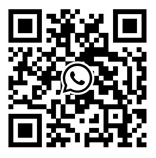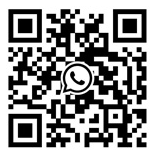
News Center
Why sensors have mastered the future of the Internet of Things
- Categories:Industry information
- Time of issue:2017-05-20 17:22
(Summary description) If the Internet of Things wants to go far, it depends on the degree of development of sensors. Whether it is information collaboration, measurement, analysis, and control between machines, sensors must be used to collect information. Whoever masters the sensor will master the future of the Internet of Things. At the same time, if China wants to gain a place in the Internet of Things or even the Industrial Internet of Things, sensors are the most suitable entry point for China. Past experience in the manufacturing and semiconductor industries will effectively help China gain a place in the future of the Internet of Things. Without sensors to detect important production data such as pressure, location, and temperature, the Industrial Internet of Things (IIoT) would not develop as it is today. Basically, the growth of the Industrial Internet of Things and Consumer Internet of Things (IoT) is accompanied by the expansion of the sensor market, and the innovation and R&D of sensor technology will also stimulate the potential and development of the Internet of Things industry. Sensors are still dominated by industrial industries, occupying 31% of the market The demand for sensors in the industrial and automation industries remains high The use of sensors in the automation industry is increasing. For example, connected cars and self-driving cars have a high demand for sensors, accounting for 21% of the sensor market; the medical industry's demand for sensors has also increased, and they rely on sensors. Monitoring and medical diagnosis of patients' health status currently accounts for 12% of the sensor market. However, the industry that occupies the most in this market is still the industry, which directly accounts for 31%. Industrial applications usually focus on the production of high-end products rather than high-volume production, so the demand for sensors is biased towards reliable, accurate and small devices in harsh working environments. As the connection and collaboration between machines (Machine-to-Machine, M2M) become more and more sophisticated, the task of sensors has evolved from passive monitoring to active detection, preventive maintenance, asset control, and data analysis to help increase production efficiency. In the field of automated processes, systems such as process control, process safety, job management, and asset utilization all require the use of sensors to measure, analyze, and control system settings. Integrating multiple sensor technologies with software analysis tools will promote faster and more accurate information dissemination of production efficiency, reliability and safety. Finally, this industry will usher in a cost-optimized working environment that can produce high-end products. Now, in order to grasp this trend, American, British and European companies are actively cooperating with technology companies to acquire companies specializing in real-time data management, asset management and sensor equipment. Mergers and acquisitions between companies are forming in the sensor market. The whirlwind is because it can not be restricted by certain barriers to entry. Traditional sensor companies are also willing to cooperate with companies in the new industry sector, and technology manufacturers have also jumped into this sensor war. Such a trend of sensor market mergers and acquisitions will key us lead to a more interconnected and more automated world than today. In several major industries, such as manufacturing and the Internet of Things, as the degree of automation increases, the use of sensors will become more popular. Such high market demand and the prospect of unlimited business opportunities will attract more people to join the market. Examples of sensors assisting smart factories: using laser sensors to automatically detect liquids, saving a lot of time and cost! When computer services and data are pushed up to the cloud, the structural evolution of the Internet of Things will also be based on devices. Not only does the cloud contain intelligence, but even devices have an extra brain that can work independently. In the industry, there are already many innovative methods that use sensors to manage production processes and optimize production efficiency. The real-time elevation measurement, volume measurement, and quality measurement of powder and bulk solids in large vessels, barrels, and silos have always been one of the worries of the industry. To manage assets and processes, very precise measurement results are required. However, most of the time the owners of these substances have to manually measure these data. Despite the assistance of laser technology, the process must be completely stopped and it took several hours. got the answer. However, with the introduction of the 5708 scanner, the industry can perform these measurements without interruption. Even if it is difficult to measure fly ash or low-dielectric m
Why sensors have mastered the future of the Internet of Things
(Summary description) If the Internet of Things wants to go far, it depends on the degree of development of sensors. Whether it is information collaboration, measurement, analysis, and control between machines, sensors must be used to collect information.
Whoever masters the sensor will master the future of the Internet of Things.
At the same time, if China wants to gain a place in the Internet of Things or even the Industrial Internet of Things, sensors are the most suitable entry point for China. Past experience in the manufacturing and semiconductor industries will effectively help China gain a place in the future of the Internet of Things.
Without sensors to detect important production data such as pressure, location, and temperature, the Industrial Internet of Things (IIoT) would not develop as it is today. Basically, the growth of the Industrial Internet of Things and Consumer Internet of Things (IoT) is accompanied by the expansion of the sensor market, and the innovation and R&D of sensor technology will also stimulate the potential and development of the Internet of Things industry.
Sensors are still dominated by industrial industries, occupying 31% of the market
The demand for sensors in the industrial and automation industries remains high
The use of sensors in the automation industry is increasing. For example, connected cars and self-driving cars have a high demand for sensors, accounting for 21% of the sensor market; the medical industry's demand for sensors has also increased, and they rely on sensors. Monitoring and medical diagnosis of patients' health status currently accounts for 12% of the sensor market. However, the industry that occupies the most in this market is still the industry, which directly accounts for 31%.
Industrial applications usually focus on the production of high-end products rather than high-volume production, so the demand for sensors is biased towards reliable, accurate and small devices in harsh working environments. As the connection and collaboration between machines (Machine-to-Machine, M2M) become more and more sophisticated, the task of sensors has evolved from passive monitoring to active detection, preventive maintenance, asset control, and data analysis to help increase production efficiency.
In the field of automated processes, systems such as process control, process safety, job management, and asset utilization all require the use of sensors to measure, analyze, and control system settings. Integrating multiple sensor technologies with software analysis tools will promote faster and more accurate information dissemination of production efficiency, reliability and safety. Finally, this industry will usher in a cost-optimized working environment that can produce high-end products.
Now, in order to grasp this trend, American, British and European companies are actively cooperating with technology companies to acquire companies specializing in real-time data management, asset management and sensor equipment. Mergers and acquisitions between companies are forming in the sensor market. The whirlwind is because it can not be restricted by certain barriers to entry. Traditional sensor companies are also willing to cooperate with companies in the new industry sector, and technology manufacturers have also jumped into this sensor war.
Such a trend of sensor market mergers and acquisitions will key us lead to a more interconnected and more automated world than today. In several major industries, such as manufacturing and the Internet of Things, as the degree of automation increases, the use of sensors will become more popular. Such high market demand and the prospect of unlimited business opportunities will attract more people to join the market.
Examples of sensors assisting smart factories: using laser sensors to automatically detect liquids, saving a lot of time and cost!
When computer services and data are pushed up to the cloud, the structural evolution of the Internet of Things will also be based on devices. Not only does the cloud contain intelligence, but even devices have an extra brain that can work independently. In the industry, there are already many innovative methods that use sensors to manage production processes and optimize production efficiency.
The real-time elevation measurement, volume measurement, and quality measurement of powder and bulk solids in large vessels, barrels, and silos have always been one of the worries of the industry. To manage assets and processes, very precise measurement results are required. However, most of the time the owners of these substances have to manually measure these data. Despite the assistance of laser technology, the process must be completely stopped and it took several hours. got the answer.
However, with the introduction of the 5708 scanner, the industry can perform these measurements without interruption. Even if it is difficult to measure fly ash or low-dielectric m
- Categories:Industry information
- Time of issue:2017-05-20 17:22






Top Ranking
RECOMMEND NEWS
Top Ranking
RECOMMEND NEWS
ONLINE MESSAGE
WRITE A MESSAGE TO US
v
Contact us
Tel:
+86 731-86171990
Email:
sales@firstratesensor.com
Address: 4th Floor, Building 1, Zhitingyuan, Zhenhua Road, Yuhua District, Changsha City, Hunan Province,China.







